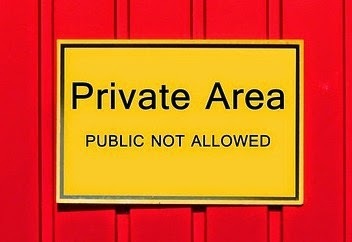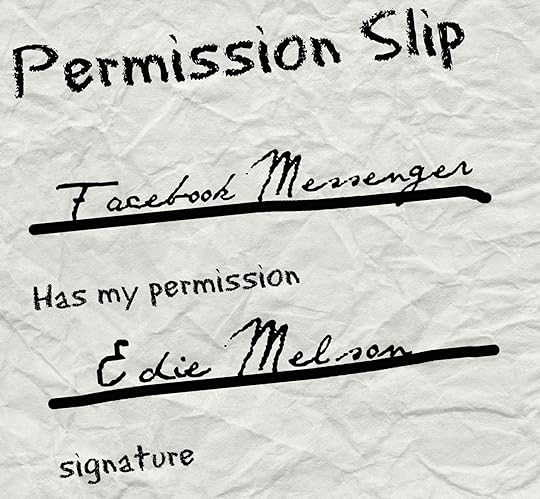Edie Melson's Blog, page 399
September 30, 2014
Indie Tuesday—How to Become an Indie Author’s Best Friend
by Jessica Keller @AuthorKeller
 Kermit the Frog would have you believe that being green is the hardest thing to be, but I’m guessing he hasn’t tried going it alone as an indie author. He just might change his tune if he did.
Kermit the Frog would have you believe that being green is the hardest thing to be, but I’m guessing he hasn’t tried going it alone as an indie author. He just might change his tune if he did.
There are many perks to self-publishing—You can write the story of your heart without trying to make it fit into what a publisher is currently buying or into a certain set of rules. You don’t have to follow trends. You can publish books at any speed you wish. You can work in multiple genres, set your prices, and decide when your books will go on sale so they can be used to bolster your new releases.
Being an indie author has so many positives, but it has its many downsides as well. Probably the most difficult one to overcome is the lack of marketing power behind your book (other than you and your one author revolution) which makes discoverability sometimes almost impossible—or at least some days it feels that way.
Discoverability is how people find your book. Within the traditional publishing industry discoverability can come through books on bookstore shelves, tours the author is sent on (be it virtual tours or physical ones), the book will appear in catalogues, and copies (usually a lot) will be given away to reviewers at the expense of the publishing house. The word-of-mouth that comes from these reviewers is priceless and that’s what has been found to drive most book sales.

For an indie author to provide enough review copies to make enough buzz to sell big, the author would probably have to go into debt or take out a large loan just to purchase all the books and then pay to mail them all out. It’s just not feasible for most of us. There is the financial aspect, as well as simply tracking down bloggers and reviewers with influence who will agree to read our work. Even if you can give out books for people to review, it’s an uphill battle. Know what the percentage is of people who actually go on to review a book they’ve promised to review? Twenty percent. That’s it (Ouch! Right?).
This is where you can step in and become an indie author’s hero. If you read a book and decide you liked it there are five easy things that don’t take a lot of time that could make a huge impact for that writer’s career.
Write a review for the book and put it on Amazon and GoodReads. I say those two, because they are the key places book lovers are mostly going to look for their book recommendations. Reviews are gold to authors. And remember, a review doesn’t have to be a long, elegantly written book report. Most of the best ones are 2-3 lines. Short and sweet—just state why you liked it (if you want to write a long one, that’s great! just don’t let the fear that it must be long and scholarly or else it’s not of worth stop you from writing one). Share a link to the book on your social media outlets. Again, short and sweet always wins here. Tell people you read the book and liked it and share the Amazon link. If you know the author, make sure to tag them in your post.Tell your friends. Research has proven that this is the number one way that books get sold. If you know someone who might like the book you read, tell them.Subscribe to the author's newsletter. If you really enjoyed the book, go to the author’s website and sign up to receive their newsletter. Most indie authors have one and they usually share exclusive contests and build street teams through their subscribers. Many of us give advance copies of our books that way.Ask your librarian to order a copy for your library so others can read it and discover that author.Really, these are great ways to promote any book—no matter how it was published. Thank you for anything and everything you do to help authors—especially us indie/hybrids!
Share a link to the book on your social media outlets. Again, short and sweet always wins here. Tell people you read the book and liked it and share the Amazon link. If you know the author, make sure to tag them in your post.Tell your friends. Research has proven that this is the number one way that books get sold. If you know someone who might like the book you read, tell them.Subscribe to the author's newsletter. If you really enjoyed the book, go to the author’s website and sign up to receive their newsletter. Most indie authors have one and they usually share exclusive contests and build street teams through their subscribers. Many of us give advance copies of our books that way.Ask your librarian to order a copy for your library so others can read it and discover that author.Really, these are great ways to promote any book—no matter how it was published. Thank you for anything and everything you do to help authors—especially us indie/hybrids!
How do you discover most of the books that you read? Do you usually write reviews or talk books with your friends, why or why not? What other ways can we share the love about a book that we liked?
TWEETABLES
5 easy ways to become an indie author's best friend - via @AuthorKeller #selfpub #publishing #bookreview (Click to Tweet)
How readers can be superheroes and help books get discovered #selfpub #publishing #amreading with @AuthorKeller (Click to Tweet)
 Jessica Keller holds degrees in both Communications and Biblical Studies. She is multi-published in both Young Adult Fiction and Inspirational Romance and has 100+ magazine and newspaper articles to her name. Her latest Indie release is a Young Adult Fantasy - Saving Yesterday. You can find her at www.JessicaKellerBooks.com, on Twitter @AuthorKeller, or on her Facebook Author Page. She lives in the Midwest with her amazing husband and very giggly daughter.
Jessica Keller holds degrees in both Communications and Biblical Studies. She is multi-published in both Young Adult Fiction and Inspirational Romance and has 100+ magazine and newspaper articles to her name. Her latest Indie release is a Young Adult Fantasy - Saving Yesterday. You can find her at www.JessicaKellerBooks.com, on Twitter @AuthorKeller, or on her Facebook Author Page. She lives in the Midwest with her amazing husband and very giggly daughter.
 Kermit the Frog would have you believe that being green is the hardest thing to be, but I’m guessing he hasn’t tried going it alone as an indie author. He just might change his tune if he did.
Kermit the Frog would have you believe that being green is the hardest thing to be, but I’m guessing he hasn’t tried going it alone as an indie author. He just might change his tune if he did.There are many perks to self-publishing—You can write the story of your heart without trying to make it fit into what a publisher is currently buying or into a certain set of rules. You don’t have to follow trends. You can publish books at any speed you wish. You can work in multiple genres, set your prices, and decide when your books will go on sale so they can be used to bolster your new releases.
Being an indie author has so many positives, but it has its many downsides as well. Probably the most difficult one to overcome is the lack of marketing power behind your book (other than you and your one author revolution) which makes discoverability sometimes almost impossible—or at least some days it feels that way.
Discoverability is how people find your book. Within the traditional publishing industry discoverability can come through books on bookstore shelves, tours the author is sent on (be it virtual tours or physical ones), the book will appear in catalogues, and copies (usually a lot) will be given away to reviewers at the expense of the publishing house. The word-of-mouth that comes from these reviewers is priceless and that’s what has been found to drive most book sales.

For an indie author to provide enough review copies to make enough buzz to sell big, the author would probably have to go into debt or take out a large loan just to purchase all the books and then pay to mail them all out. It’s just not feasible for most of us. There is the financial aspect, as well as simply tracking down bloggers and reviewers with influence who will agree to read our work. Even if you can give out books for people to review, it’s an uphill battle. Know what the percentage is of people who actually go on to review a book they’ve promised to review? Twenty percent. That’s it (Ouch! Right?).
This is where you can step in and become an indie author’s hero. If you read a book and decide you liked it there are five easy things that don’t take a lot of time that could make a huge impact for that writer’s career.
Write a review for the book and put it on Amazon and GoodReads. I say those two, because they are the key places book lovers are mostly going to look for their book recommendations. Reviews are gold to authors. And remember, a review doesn’t have to be a long, elegantly written book report. Most of the best ones are 2-3 lines. Short and sweet—just state why you liked it (if you want to write a long one, that’s great! just don’t let the fear that it must be long and scholarly or else it’s not of worth stop you from writing one).
 Share a link to the book on your social media outlets. Again, short and sweet always wins here. Tell people you read the book and liked it and share the Amazon link. If you know the author, make sure to tag them in your post.Tell your friends. Research has proven that this is the number one way that books get sold. If you know someone who might like the book you read, tell them.Subscribe to the author's newsletter. If you really enjoyed the book, go to the author’s website and sign up to receive their newsletter. Most indie authors have one and they usually share exclusive contests and build street teams through their subscribers. Many of us give advance copies of our books that way.Ask your librarian to order a copy for your library so others can read it and discover that author.Really, these are great ways to promote any book—no matter how it was published. Thank you for anything and everything you do to help authors—especially us indie/hybrids!
Share a link to the book on your social media outlets. Again, short and sweet always wins here. Tell people you read the book and liked it and share the Amazon link. If you know the author, make sure to tag them in your post.Tell your friends. Research has proven that this is the number one way that books get sold. If you know someone who might like the book you read, tell them.Subscribe to the author's newsletter. If you really enjoyed the book, go to the author’s website and sign up to receive their newsletter. Most indie authors have one and they usually share exclusive contests and build street teams through their subscribers. Many of us give advance copies of our books that way.Ask your librarian to order a copy for your library so others can read it and discover that author.Really, these are great ways to promote any book—no matter how it was published. Thank you for anything and everything you do to help authors—especially us indie/hybrids!How do you discover most of the books that you read? Do you usually write reviews or talk books with your friends, why or why not? What other ways can we share the love about a book that we liked?
TWEETABLES
5 easy ways to become an indie author's best friend - via @AuthorKeller #selfpub #publishing #bookreview (Click to Tweet)
How readers can be superheroes and help books get discovered #selfpub #publishing #amreading with @AuthorKeller (Click to Tweet)
 Jessica Keller holds degrees in both Communications and Biblical Studies. She is multi-published in both Young Adult Fiction and Inspirational Romance and has 100+ magazine and newspaper articles to her name. Her latest Indie release is a Young Adult Fantasy - Saving Yesterday. You can find her at www.JessicaKellerBooks.com, on Twitter @AuthorKeller, or on her Facebook Author Page. She lives in the Midwest with her amazing husband and very giggly daughter.
Jessica Keller holds degrees in both Communications and Biblical Studies. She is multi-published in both Young Adult Fiction and Inspirational Romance and has 100+ magazine and newspaper articles to her name. Her latest Indie release is a Young Adult Fantasy - Saving Yesterday. You can find her at www.JessicaKellerBooks.com, on Twitter @AuthorKeller, or on her Facebook Author Page. She lives in the Midwest with her amazing husband and very giggly daughter.
Published on September 30, 2014 00:30
September 29, 2014
Social Media Monday—Is the Facebook Messenger App Safe to Install?
by Edie Melson @EdieMelson
[image error] Is it safe to install the Facebook Messenger App?In a word, YES, it is safe. Beyond that, I have it installed on all my mobile devices.
Lately this seems to be one of the question I get asked the most. But with all the hype and warnings about this app, I’m sure you’d like to know more than just a simple yes. I wanted to make sure it was safe, so I dug deeper. I’m going to share why I think it’s safe to install.
I totally get the frustration about being forced to install the app. It was much simpler when it was all part of the same thing. But the creators of FB didn’t do this to take over your mobile device (or as a plot to take over the world). They did it so that particular part of FB would work smoother.
Here’s what you need to know about apps. They’re abbreviated versions of a program or platform. Because they need to be a smaller file size—to fit on a variety of devices and run efficiently—certain parts of the original are left out or reduced. That’s part of the reason Facebook made Messenger into it’s own app. Separating it allows them to add back in some things that were missing and to offer additional things.
 What about privacy issues?But what about the privacy issues?The privacy issue begins with the convoluted mess that is Android. In an attempt to make sure consumers know what they’re getting into, Google requires lengthy permissions. Unfortunately, to the average consumer, all this transparency is just plain scary. But because Google requires it for Android, it comes across everywhere.
What about privacy issues?But what about the privacy issues?The privacy issue begins with the convoluted mess that is Android. In an attempt to make sure consumers know what they’re getting into, Google requires lengthy permissions. Unfortunately, to the average consumer, all this transparency is just plain scary. But because Google requires it for Android, it comes across everywhere.
Basically, all Messenger is asking for is permission to do what you expect it to do. But it does so at the front end—all at once. This keeps the app runs quickly and smoothly.
Here’s a break down of what has everyone so nervous.
It’s asking permission to access your identity: Find your accounts on the device.Access your contacts information.
These are NOT so it can go rogue and start posting without your knowledge. It’s so that when you ask it to post something, it already has permission to do so. That’s a big time saver, and frustration saver. Can you imagine what it would be like if every time you tried to send an IM you had to grant permission. (Can anyone remember that irritating habit from Windows Vista?)
It’s asking for SMS permission to:Edit your text messages.Receive text messages.Read text messages.Send text messages.
This is because if you add your phone number (to make actual cell calls from within the app) it needs to be able to verify who you are.
It’s asking permission to access your phone to: I granted permission.Call phone numbers directly.Read the call log.
I granted permission.Call phone numbers directly.Read the call log.
This will allow you to call phone numbers from directly within the app and to let you know who is calling if someone calls you from within Messenger.
It’s asking for permission to access photos, media, and files to:Test access to protected storage.Modify or delete the contents of your USB storage.
No, it’s not going to delete things you don’t want deleted. This helps it manage the storage within the app and find things you already have in your phone’s storage. This keeps from using up valuable space with duplicate images, videos and files. It also helps the app run quickly and efficiently.
It needs permission to access your Camera and Microphone to:Take pictures.Record audio.
This allows you to take pictures within the app to share with friends, and does the same with audio.
It asks permission to access the Wi-Fi connection to:View the available Wi-Fi connections.
This keeps you from relying on data usage if there’s a Wi-Fi connection available.
It also requires permissions to:Run at startup—so you don’t have to remember to reload the app each time you wake up your phone.Prevent device from sleeping—this helps if you’re in the middle of recording something. It will prevent the device from going to sleep until after you’ve finished.Download files without notification—this allows Messenger to update itself without you having to install a new version of the app.Etc. etc. etc.
Bottom Line [image error] I say YES to installing FB Messenger on my mobile devices.The important thing to understand is that none of this is unique to the Messenger App. All of the apps you’ve installed have similar permissions. It’s not unusual to be a little freaked out over the amount of data these online giants are collecting, but the truth is, if you’re already using Facebook (or even Google) they already have access to most of your personal information and browsing habits.
I’d love to know what other questions you have about this issue and especially whether or not this post has helped. Be sure to leave your comments in the section below.
And don’t forget to join the conversation.Blessings,Edie
TWEETABLESIs the Facebook Messenger App safe for Mobile Devices?#SocialMedia Mentor @EdieMelson says yes & why (Click to Tweet)
Facebook Messenger App – Why it’s safe for mobile devices – via #SocialMedia Mentor @EdieMelson (Clickto Tweet)
[image error] Is it safe to install the Facebook Messenger App?In a word, YES, it is safe. Beyond that, I have it installed on all my mobile devices.
Lately this seems to be one of the question I get asked the most. But with all the hype and warnings about this app, I’m sure you’d like to know more than just a simple yes. I wanted to make sure it was safe, so I dug deeper. I’m going to share why I think it’s safe to install.
I totally get the frustration about being forced to install the app. It was much simpler when it was all part of the same thing. But the creators of FB didn’t do this to take over your mobile device (or as a plot to take over the world). They did it so that particular part of FB would work smoother.
Here’s what you need to know about apps. They’re abbreviated versions of a program or platform. Because they need to be a smaller file size—to fit on a variety of devices and run efficiently—certain parts of the original are left out or reduced. That’s part of the reason Facebook made Messenger into it’s own app. Separating it allows them to add back in some things that were missing and to offer additional things.
 What about privacy issues?But what about the privacy issues?The privacy issue begins with the convoluted mess that is Android. In an attempt to make sure consumers know what they’re getting into, Google requires lengthy permissions. Unfortunately, to the average consumer, all this transparency is just plain scary. But because Google requires it for Android, it comes across everywhere.
What about privacy issues?But what about the privacy issues?The privacy issue begins with the convoluted mess that is Android. In an attempt to make sure consumers know what they’re getting into, Google requires lengthy permissions. Unfortunately, to the average consumer, all this transparency is just plain scary. But because Google requires it for Android, it comes across everywhere.Basically, all Messenger is asking for is permission to do what you expect it to do. But it does so at the front end—all at once. This keeps the app runs quickly and smoothly.
Here’s a break down of what has everyone so nervous.
It’s asking permission to access your identity: Find your accounts on the device.Access your contacts information.
These are NOT so it can go rogue and start posting without your knowledge. It’s so that when you ask it to post something, it already has permission to do so. That’s a big time saver, and frustration saver. Can you imagine what it would be like if every time you tried to send an IM you had to grant permission. (Can anyone remember that irritating habit from Windows Vista?)
It’s asking for SMS permission to:Edit your text messages.Receive text messages.Read text messages.Send text messages.
This is because if you add your phone number (to make actual cell calls from within the app) it needs to be able to verify who you are.
It’s asking permission to access your phone to:
 I granted permission.Call phone numbers directly.Read the call log.
I granted permission.Call phone numbers directly.Read the call log.This will allow you to call phone numbers from directly within the app and to let you know who is calling if someone calls you from within Messenger.
It’s asking for permission to access photos, media, and files to:Test access to protected storage.Modify or delete the contents of your USB storage.
No, it’s not going to delete things you don’t want deleted. This helps it manage the storage within the app and find things you already have in your phone’s storage. This keeps from using up valuable space with duplicate images, videos and files. It also helps the app run quickly and efficiently.
It needs permission to access your Camera and Microphone to:Take pictures.Record audio.
This allows you to take pictures within the app to share with friends, and does the same with audio.
It asks permission to access the Wi-Fi connection to:View the available Wi-Fi connections.
This keeps you from relying on data usage if there’s a Wi-Fi connection available.
It also requires permissions to:Run at startup—so you don’t have to remember to reload the app each time you wake up your phone.Prevent device from sleeping—this helps if you’re in the middle of recording something. It will prevent the device from going to sleep until after you’ve finished.Download files without notification—this allows Messenger to update itself without you having to install a new version of the app.Etc. etc. etc.
Bottom Line [image error] I say YES to installing FB Messenger on my mobile devices.The important thing to understand is that none of this is unique to the Messenger App. All of the apps you’ve installed have similar permissions. It’s not unusual to be a little freaked out over the amount of data these online giants are collecting, but the truth is, if you’re already using Facebook (or even Google) they already have access to most of your personal information and browsing habits.
I’d love to know what other questions you have about this issue and especially whether or not this post has helped. Be sure to leave your comments in the section below.
And don’t forget to join the conversation.Blessings,Edie
TWEETABLESIs the Facebook Messenger App safe for Mobile Devices?#SocialMedia Mentor @EdieMelson says yes & why (Click to Tweet)
Facebook Messenger App – Why it’s safe for mobile devices – via #SocialMedia Mentor @EdieMelson (Clickto Tweet)
Published on September 29, 2014 01:00
September 27, 2014
Tasting Life Twice—A Social Media Image for Writers
I've found that as I writer, I process the world through words. Maybe that's why this quote resonates so deeply with me. So I'm curious, how has writing helped you experience life more deeply?
 "We write to taste life twice, in the moment and in retrospect." -Anais Nin
"We write to taste life twice, in the moment and in retrospect." -Anais Nin
Share your thoughts in the comment section below.
I also invite you to use this image any way you like online. Post it to your blog, share it on Facebook, Twitter, Pinterest, anywhere you'd like. All I ask is that you keep it intact, with my website watermark visible.
Don't forget to join the conversation!Blessings,Edie
TWEETABLE
How has writing helped you process life? A social media image to share - via @EdieMelson (Click to Tweet)
 "We write to taste life twice, in the moment and in retrospect." -Anais Nin
"We write to taste life twice, in the moment and in retrospect." -Anais NinShare your thoughts in the comment section below.
I also invite you to use this image any way you like online. Post it to your blog, share it on Facebook, Twitter, Pinterest, anywhere you'd like. All I ask is that you keep it intact, with my website watermark visible.
Don't forget to join the conversation!Blessings,Edie
TWEETABLE
How has writing helped you process life? A social media image to share - via @EdieMelson (Click to Tweet)
Published on September 27, 2014 01:00
September 26, 2014
The Editor’s Desk—A No-nonsense Approach to Non-Fiction
by Lori Hatcher @LoriHatcher2
 Welcome to the Editor's Desk.Welcome to The Editor’s Desk—A No-nonsense Approach to Non-fiction. On the last Friday of every month, I look forward to sharing some nuts and bolts about non-fiction writing. This month’s post is the first in a series called “How to Drive an Editor Crazy.” I write from the perspective of a print magazine editor, but whatever your target publication, the tips I share will help you submit polished, professional work so you DON’T drive your editor crazy.How to Drive an Editor Crazy
Welcome to the Editor's Desk.Welcome to The Editor’s Desk—A No-nonsense Approach to Non-fiction. On the last Friday of every month, I look forward to sharing some nuts and bolts about non-fiction writing. This month’s post is the first in a series called “How to Drive an Editor Crazy.” I write from the perspective of a print magazine editor, but whatever your target publication, the tips I share will help you submit polished, professional work so you DON’T drive your editor crazy.How to Drive an Editor Crazy
 To drive an editor crazy, paraphrase Bible verses.Paraphrase Bible verses. This is true confession time, friends. A book editor once threatened me with death and dismemberment when she double-checked the Scripture references in one of my devotional books and discovered I’d used the LHV (Lori Hatcher Version) of the Bible. Because I’d depended on my memory, which was a mishmash of the King James, New International, and Holman Christian Study versions, there was no way she could check my Scripture references for accuracy in punctuation and quotation. My carelessness and laziness caused her hours of extra work and slowed down the editing process considerably.
To drive an editor crazy, paraphrase Bible verses.Paraphrase Bible verses. This is true confession time, friends. A book editor once threatened me with death and dismemberment when she double-checked the Scripture references in one of my devotional books and discovered I’d used the LHV (Lori Hatcher Version) of the Bible. Because I’d depended on my memory, which was a mishmash of the King James, New International, and Holman Christian Study versions, there was no way she could check my Scripture references for accuracy in punctuation and quotation. My carelessness and laziness caused her hours of extra work and slowed down the editing process considerably.
After a humiliating time of confession, repentance, and restitution (I sent her Trader Joe’s Chocolate Covered Almonds with Sea Salt and Caramel Cashew cookies by overnight mail), I had learned a valuable lesson. When quoting Scripture, choose a translation, then copy and paste EVERY Bible verse, with its appropriate reference, from your Bible software into your article. Even if it’s John 3:16, don’t rely on your memory.
 To drive an editor crazy, lowercase the word Bible.Lowercase the word Bible. I’m always a tiny bit shocked when a writer fails to capitalize the B in Bible. Whether you revere or believe in the Bible is not the issue that determines this rule. All style manuals require a writer to capitalize any holy book, whether you’re citing the Qur’an, the Talmud, or the Bible. You should also capitalize common epithets for the Bible such as the Word and Scripture, but not adjectives indicating the Bible, like biblical or scriptural.
To drive an editor crazy, lowercase the word Bible.Lowercase the word Bible. I’m always a tiny bit shocked when a writer fails to capitalize the B in Bible. Whether you revere or believe in the Bible is not the issue that determines this rule. All style manuals require a writer to capitalize any holy book, whether you’re citing the Qur’an, the Talmud, or the Bible. You should also capitalize common epithets for the Bible such as the Word and Scripture, but not adjectives indicating the Bible, like biblical or scriptural.
There are many rules governing the correct way to quote Scripture, capitalize books and parts of the Bible, and handle religious terminology. The Christian Writer’s Manual of Style is my go-to resource to keep it straight. It’s helpful, user-friendly, and relatively inexpensive. Whatever resource you choose, remember—NEVER quote a Bible verse from memory or fail to capitalize the Bible. If you do, you’ll drive your editor crazy.
Don't forget to join the conversation!
TWEETABLESEditor, @LoriHatcher2 shares tips to keep you from driving your editor crazy on @EdieMelson (Click to Tweet)
Don't drive your editor crazy - tips from @LoriHatcher2 on @EdieMelson (Click to Tweet)
 Lori Hatcher is the editor of Reach Out, Columbia magazine and the author of two devotional books, Joy in the Journey, Encouragement for Homeschooling Moms and Hungry for God…Starving for Time, 5-Minute Devotions for Busy Women (releasing Nov. 1). A blogger and women’s ministry speaker, her goal is to help women connect with God in the craziness of life. You’ll find her pondering the marvelous and the mundane on her blog, Hungry for God…Starving for Time. Connect with her on Twitter at @LoriHatcher2 or on Facebook - Hungry for God, Starving for Time.
Lori Hatcher is the editor of Reach Out, Columbia magazine and the author of two devotional books, Joy in the Journey, Encouragement for Homeschooling Moms and Hungry for God…Starving for Time, 5-Minute Devotions for Busy Women (releasing Nov. 1). A blogger and women’s ministry speaker, her goal is to help women connect with God in the craziness of life. You’ll find her pondering the marvelous and the mundane on her blog, Hungry for God…Starving for Time. Connect with her on Twitter at @LoriHatcher2 or on Facebook - Hungry for God, Starving for Time.
 Welcome to the Editor's Desk.Welcome to The Editor’s Desk—A No-nonsense Approach to Non-fiction. On the last Friday of every month, I look forward to sharing some nuts and bolts about non-fiction writing. This month’s post is the first in a series called “How to Drive an Editor Crazy.” I write from the perspective of a print magazine editor, but whatever your target publication, the tips I share will help you submit polished, professional work so you DON’T drive your editor crazy.How to Drive an Editor Crazy
Welcome to the Editor's Desk.Welcome to The Editor’s Desk—A No-nonsense Approach to Non-fiction. On the last Friday of every month, I look forward to sharing some nuts and bolts about non-fiction writing. This month’s post is the first in a series called “How to Drive an Editor Crazy.” I write from the perspective of a print magazine editor, but whatever your target publication, the tips I share will help you submit polished, professional work so you DON’T drive your editor crazy.How to Drive an Editor Crazy To drive an editor crazy, paraphrase Bible verses.Paraphrase Bible verses. This is true confession time, friends. A book editor once threatened me with death and dismemberment when she double-checked the Scripture references in one of my devotional books and discovered I’d used the LHV (Lori Hatcher Version) of the Bible. Because I’d depended on my memory, which was a mishmash of the King James, New International, and Holman Christian Study versions, there was no way she could check my Scripture references for accuracy in punctuation and quotation. My carelessness and laziness caused her hours of extra work and slowed down the editing process considerably.
To drive an editor crazy, paraphrase Bible verses.Paraphrase Bible verses. This is true confession time, friends. A book editor once threatened me with death and dismemberment when she double-checked the Scripture references in one of my devotional books and discovered I’d used the LHV (Lori Hatcher Version) of the Bible. Because I’d depended on my memory, which was a mishmash of the King James, New International, and Holman Christian Study versions, there was no way she could check my Scripture references for accuracy in punctuation and quotation. My carelessness and laziness caused her hours of extra work and slowed down the editing process considerably.After a humiliating time of confession, repentance, and restitution (I sent her Trader Joe’s Chocolate Covered Almonds with Sea Salt and Caramel Cashew cookies by overnight mail), I had learned a valuable lesson. When quoting Scripture, choose a translation, then copy and paste EVERY Bible verse, with its appropriate reference, from your Bible software into your article. Even if it’s John 3:16, don’t rely on your memory.
 To drive an editor crazy, lowercase the word Bible.Lowercase the word Bible. I’m always a tiny bit shocked when a writer fails to capitalize the B in Bible. Whether you revere or believe in the Bible is not the issue that determines this rule. All style manuals require a writer to capitalize any holy book, whether you’re citing the Qur’an, the Talmud, or the Bible. You should also capitalize common epithets for the Bible such as the Word and Scripture, but not adjectives indicating the Bible, like biblical or scriptural.
To drive an editor crazy, lowercase the word Bible.Lowercase the word Bible. I’m always a tiny bit shocked when a writer fails to capitalize the B in Bible. Whether you revere or believe in the Bible is not the issue that determines this rule. All style manuals require a writer to capitalize any holy book, whether you’re citing the Qur’an, the Talmud, or the Bible. You should also capitalize common epithets for the Bible such as the Word and Scripture, but not adjectives indicating the Bible, like biblical or scriptural.There are many rules governing the correct way to quote Scripture, capitalize books and parts of the Bible, and handle religious terminology. The Christian Writer’s Manual of Style is my go-to resource to keep it straight. It’s helpful, user-friendly, and relatively inexpensive. Whatever resource you choose, remember—NEVER quote a Bible verse from memory or fail to capitalize the Bible. If you do, you’ll drive your editor crazy.
Don't forget to join the conversation!
TWEETABLESEditor, @LoriHatcher2 shares tips to keep you from driving your editor crazy on @EdieMelson (Click to Tweet)
Don't drive your editor crazy - tips from @LoriHatcher2 on @EdieMelson (Click to Tweet)
 Lori Hatcher is the editor of Reach Out, Columbia magazine and the author of two devotional books, Joy in the Journey, Encouragement for Homeschooling Moms and Hungry for God…Starving for Time, 5-Minute Devotions for Busy Women (releasing Nov. 1). A blogger and women’s ministry speaker, her goal is to help women connect with God in the craziness of life. You’ll find her pondering the marvelous and the mundane on her blog, Hungry for God…Starving for Time. Connect with her on Twitter at @LoriHatcher2 or on Facebook - Hungry for God, Starving for Time.
Lori Hatcher is the editor of Reach Out, Columbia magazine and the author of two devotional books, Joy in the Journey, Encouragement for Homeschooling Moms and Hungry for God…Starving for Time, 5-Minute Devotions for Busy Women (releasing Nov. 1). A blogger and women’s ministry speaker, her goal is to help women connect with God in the craziness of life. You’ll find her pondering the marvelous and the mundane on her blog, Hungry for God…Starving for Time. Connect with her on Twitter at @LoriHatcher2 or on Facebook - Hungry for God, Starving for Time.
Published on September 26, 2014 01:00
September 25, 2014
Juggling Family, Commitments and Writing
by Edie Melson @EdieMelson
 Life is busy. I know this fact catches no one by surprise.
Life is busy. I know this fact catches no one by surprise.
We all fight the battle of too much to do and too little time to do it. And it’s one of the biggest struggles writers face. I know we all have the same 24 hours in each day, but at times it’s harder for writers. Juggling family, commitments and writing can seem like an overwhelming task.
Not because we face more time commitments, but we have the added challenge of working from home—at a job many people consider nothing more than a pleasant hobby. Even if we have an additional job that takes us away from home, the time we spend writing is a job, and deserves the same kind of respect and priority. I address this issue specifically in my blog post, I Don’t Get No Respect!
Today I’m going to address how to give writing the time we need to, and still fulfill our other commitments? It’s not easy, but I’m going to share some tips that may help.
 Decide where you want to go with your writing. You don’t have to schedule your time to get there overnight, but to get there, you do need to know where you’re going.
Decide where you want to go with your writing. You don’t have to schedule your time to get there overnight, but to get there, you do need to know where you’re going.
Take an inventory of what’s happening in your life right now. This is also going affect how much time you can realistically spend on writing.
Now answer these two questions:What are you doing now, that you love MORE than writing?What are you doing now that you DON’T love more than writing?
Once you have these three issues decided, here’s how to move forward.
Set deadlines. Even if you don’t have a client waiting for an article, give yourself a deadline. Then, write it down. It’s easy to fudge a deadline when it’s just in your head.
Set a weekly writing goal. If you write fiction, it may be a word goal. If you write articles or devotions, it may be a finished product goal. (For example, I’ll have 2 finished devotions every week.) I recommend a weekly goal rather than a daily one because it’s easier to meet when life happens. Here are three options to setting this goal that you may not have considered:
 Weekly Word Count Goal. One of the things I've found most helpful when setting word count goals is to set my goal for the week rather than the day. I still have two teenagers in and out of the house so sometimes life interrupts life. To combat this, I set a weekly word count goal for my fiction endeavors. Then, I break it down into daily totals. If I miss a day's goal, I can make it up later in the week and I don't wind up feeling like I've failed.
Weekly Word Count Goal. One of the things I've found most helpful when setting word count goals is to set my goal for the week rather than the day. I still have two teenagers in and out of the house so sometimes life interrupts life. To combat this, I set a weekly word count goal for my fiction endeavors. Then, I break it down into daily totals. If I miss a day's goal, I can make it up later in the week and I don't wind up feeling like I've failed.
Weekly Project Goal. You may normally work on smaller projects, like articles or devotions. If that's the case, try to set a goal of one devotion or article a week.
Revolving Weekly Goal. You might want to try something I call a revolving weekly goal. This is where you have a different goal every week for 3 weeks and then it starts over. The first week you might complete a small project. The next week, you look for markets where you can sell it. The third week you might spend learning about the craft of writing. Then you begin the cycle again.
Build in some room to breathe.Let’s face it, life happens. And more than that, unscheduled crisis come up at the worst possible time. To combat that, I’ve learned to build some additional time into my schedule. For example, if I have an article due on August 15, I put August 10 on my schedule as the due date. This gives me room to maneuver in case I have an emergency. It also gives me the opportunity to turn something in early (always a plus for you as a writer), as well as have some extra time for editing.
Find a critique group or partner. If you’re meeting regularly with someone, you’re more apt to be producing regularly. What if you don’t know any writers nearby to meet with? Look for an online group.
All of these things can help us find the write balance in life, but I'd like to know what works for you. How have you managed the juggling act that is life today? Leave your answers in the comment section below.
Don't forget to join the conversation!Blessings,Edie
TWEETABLES
Struggling with where #writing fits into your life? @EdieMelson has tips to help you juggle (Click to Tweet)
Tips to help you juggle family, commitments and #writing - via @EdieMelson (Click to Tweet)
 Life is busy. I know this fact catches no one by surprise.
Life is busy. I know this fact catches no one by surprise.We all fight the battle of too much to do and too little time to do it. And it’s one of the biggest struggles writers face. I know we all have the same 24 hours in each day, but at times it’s harder for writers. Juggling family, commitments and writing can seem like an overwhelming task.
Not because we face more time commitments, but we have the added challenge of working from home—at a job many people consider nothing more than a pleasant hobby. Even if we have an additional job that takes us away from home, the time we spend writing is a job, and deserves the same kind of respect and priority. I address this issue specifically in my blog post, I Don’t Get No Respect!
Today I’m going to address how to give writing the time we need to, and still fulfill our other commitments? It’s not easy, but I’m going to share some tips that may help.
 Decide where you want to go with your writing. You don’t have to schedule your time to get there overnight, but to get there, you do need to know where you’re going.
Decide where you want to go with your writing. You don’t have to schedule your time to get there overnight, but to get there, you do need to know where you’re going.Take an inventory of what’s happening in your life right now. This is also going affect how much time you can realistically spend on writing.
Now answer these two questions:What are you doing now, that you love MORE than writing?What are you doing now that you DON’T love more than writing?
Once you have these three issues decided, here’s how to move forward.
Set deadlines. Even if you don’t have a client waiting for an article, give yourself a deadline. Then, write it down. It’s easy to fudge a deadline when it’s just in your head.
Set a weekly writing goal. If you write fiction, it may be a word goal. If you write articles or devotions, it may be a finished product goal. (For example, I’ll have 2 finished devotions every week.) I recommend a weekly goal rather than a daily one because it’s easier to meet when life happens. Here are three options to setting this goal that you may not have considered:
 Weekly Word Count Goal. One of the things I've found most helpful when setting word count goals is to set my goal for the week rather than the day. I still have two teenagers in and out of the house so sometimes life interrupts life. To combat this, I set a weekly word count goal for my fiction endeavors. Then, I break it down into daily totals. If I miss a day's goal, I can make it up later in the week and I don't wind up feeling like I've failed.
Weekly Word Count Goal. One of the things I've found most helpful when setting word count goals is to set my goal for the week rather than the day. I still have two teenagers in and out of the house so sometimes life interrupts life. To combat this, I set a weekly word count goal for my fiction endeavors. Then, I break it down into daily totals. If I miss a day's goal, I can make it up later in the week and I don't wind up feeling like I've failed.Weekly Project Goal. You may normally work on smaller projects, like articles or devotions. If that's the case, try to set a goal of one devotion or article a week.
Revolving Weekly Goal. You might want to try something I call a revolving weekly goal. This is where you have a different goal every week for 3 weeks and then it starts over. The first week you might complete a small project. The next week, you look for markets where you can sell it. The third week you might spend learning about the craft of writing. Then you begin the cycle again.
Build in some room to breathe.Let’s face it, life happens. And more than that, unscheduled crisis come up at the worst possible time. To combat that, I’ve learned to build some additional time into my schedule. For example, if I have an article due on August 15, I put August 10 on my schedule as the due date. This gives me room to maneuver in case I have an emergency. It also gives me the opportunity to turn something in early (always a plus for you as a writer), as well as have some extra time for editing.
Find a critique group or partner. If you’re meeting regularly with someone, you’re more apt to be producing regularly. What if you don’t know any writers nearby to meet with? Look for an online group.
All of these things can help us find the write balance in life, but I'd like to know what works for you. How have you managed the juggling act that is life today? Leave your answers in the comment section below.
Don't forget to join the conversation!Blessings,Edie
TWEETABLES
Struggling with where #writing fits into your life? @EdieMelson has tips to help you juggle (Click to Tweet)
Tips to help you juggle family, commitments and #writing - via @EdieMelson (Click to Tweet)
Published on September 25, 2014 01:00
September 24, 2014
How Flabby Prose is like Flabby Arms—Plus 6 Tips to Get Your Writing in Shape
by DiAnne Mills @DiAnnMills
 Not so long ago, I took a critical look at myself, and I didn’t like what the mirror revealed. I have flabby arms. Some of you call these bat wings or fly-zones.
Not so long ago, I took a critical look at myself, and I didn’t like what the mirror revealed. I have flabby arms. Some of you call these bat wings or fly-zones.
I refer to them as dangling participles, nothing I want on me or in my writing.
Now, I’m a small person, and I exercise and lift weights, but still the flabby arms persist. What was I doing wrong? Had my body become accustomed to the same exercises?I refused to deal with the disgusting condition any longer. My commitment hit the no-turning-back level. I searched YouTube for videos guaranteed to make my arms firm and shapely. Goodness! I live in Houston where sleeveless is a fact of life. One of the videos captured my attention. The exercises were different from others, using ballet movements. After I completed a set, my arms ached. Thrills! By Christmas, my arms should look substantially better. I’m so very excited. Then I sat at my computer and focused on my latest novel, due November 1. I cringed. I stood and paced. The truth glared at me. I had flabby prose. Not just an excess but lazy writing that shocked and angered me. After publishing for 14 years, why did my craft sound amateurish? Had my mind grown accustomed to the same words and methods of stringing together sentences? Why wasn’t I applying what I’d learned and taught at writing conferences? Transparency is supposed to be healing. Right now it hurts. I refused to deal with my lack of professionalism any longer. My commitment hit the no-turning-back level. Just like my flabby arms were under a new conditioning program, so would be my flabby prose. 6 Discoveries made While Toning My Flabby Prose
One of the videos captured my attention. The exercises were different from others, using ballet movements. After I completed a set, my arms ached. Thrills! By Christmas, my arms should look substantially better. I’m so very excited. Then I sat at my computer and focused on my latest novel, due November 1. I cringed. I stood and paced. The truth glared at me. I had flabby prose. Not just an excess but lazy writing that shocked and angered me. After publishing for 14 years, why did my craft sound amateurish? Had my mind grown accustomed to the same words and methods of stringing together sentences? Why wasn’t I applying what I’d learned and taught at writing conferences? Transparency is supposed to be healing. Right now it hurts. I refused to deal with my lack of professionalism any longer. My commitment hit the no-turning-back level. Just like my flabby arms were under a new conditioning program, so would be my flabby prose. 6 Discoveries made While Toning My Flabby Prose
 1. The more I challenge my voice, the better writer I become. We writers can sometimes grow too comfortable in our word choices and body language. 2. The more I read my favorite authors’ books, the better writer I become. Characters strengthen into real and unique heroes, heroines, and villains. 3. The more quality movies I see, the better writer I become. Dialogue, setting, and body language show am amazing and credible story. 4. The more time I spend with others, the better writer I become. I learn from their lives what’s critical in today’s world, and create my stories around those needs. 5. The more passion I develop for my story and characters, the more my writing comes alive.When I can’t eat or sleep because my characters are in the midst of a problem, I have a story that is real. 6. The more time I spend in prayer, the better writer I become. The story steps from the writer zone to the infinite possibilities of the great Creator.
1. The more I challenge my voice, the better writer I become. We writers can sometimes grow too comfortable in our word choices and body language. 2. The more I read my favorite authors’ books, the better writer I become. Characters strengthen into real and unique heroes, heroines, and villains. 3. The more quality movies I see, the better writer I become. Dialogue, setting, and body language show am amazing and credible story. 4. The more time I spend with others, the better writer I become. I learn from their lives what’s critical in today’s world, and create my stories around those needs. 5. The more passion I develop for my story and characters, the more my writing comes alive.When I can’t eat or sleep because my characters are in the midst of a problem, I have a story that is real. 6. The more time I spend in prayer, the better writer I become. The story steps from the writer zone to the infinite possibilities of the great Creator.
Here’s my challenge to you. If your prose has grown lax, and flabbiness has inched its way into your writing, stop and assess you’re style. Bestselling writers gauge their writing habits so their stories reach into our hearts and never let us go. I want those qualities in every one of my stories. My arms and writing are getting tighter and tighter. What about you?
Don't forget to join the conversation!
TWEETABLES
6 Discoveries best-selling author @DiAnnMills made while trimming flabby prose - on @EdieMelson (Click to Tweet)
How is flabby prose like flabby arms? @DiAnnMills has the answer-and tips to help on @EdieMelson (Click to Tweet)
 DiAnn Mills is a bestselling author who believes her readers should expect an adventure. She currently has more than sixty books published. Her titles have appeared on the CBA and ECPA bestseller lists; won two Christy Awards; and been finalists for the RITA, Daphne Du Maurier, Inspirational Readers’ Choice, and Carol award contests. DiAnn is a founding board member of the American Christian Fiction Writers; the 2014 president of the Romance Writers of America’s Faith, Hope, & Love chapter; and a member of Inspirational Writers Alive, Advanced Writers and Speakers Association, and International Thriller Writers. She speaks to various groups and teaches writing workshops around the country. DiAnn is also a craftsman mentor for the Jerry B. Jenkins Christian Writers Guild. She and her husband live in sunny Houston, Texas. Visit her website at www.diannmills.com and connect with her onTwitter: https://twitter.com/diannmillsFacebook: www.facebook.com/DiAnnMillsPinterest: www.pinterest.com/DiAnnMillsGoodreads: www.goodreads.com/DiAnnMillsGoogle+: https://plus.google.com/u/0/+DiAnnMillsExpectAnAdventure/posts
DiAnn Mills is a bestselling author who believes her readers should expect an adventure. She currently has more than sixty books published. Her titles have appeared on the CBA and ECPA bestseller lists; won two Christy Awards; and been finalists for the RITA, Daphne Du Maurier, Inspirational Readers’ Choice, and Carol award contests. DiAnn is a founding board member of the American Christian Fiction Writers; the 2014 president of the Romance Writers of America’s Faith, Hope, & Love chapter; and a member of Inspirational Writers Alive, Advanced Writers and Speakers Association, and International Thriller Writers. She speaks to various groups and teaches writing workshops around the country. DiAnn is also a craftsman mentor for the Jerry B. Jenkins Christian Writers Guild. She and her husband live in sunny Houston, Texas. Visit her website at www.diannmills.com and connect with her onTwitter: https://twitter.com/diannmillsFacebook: www.facebook.com/DiAnnMillsPinterest: www.pinterest.com/DiAnnMillsGoodreads: www.goodreads.com/DiAnnMillsGoogle+: https://plus.google.com/u/0/+DiAnnMillsExpectAnAdventure/posts
 Not so long ago, I took a critical look at myself, and I didn’t like what the mirror revealed. I have flabby arms. Some of you call these bat wings or fly-zones.
Not so long ago, I took a critical look at myself, and I didn’t like what the mirror revealed. I have flabby arms. Some of you call these bat wings or fly-zones. I refer to them as dangling participles, nothing I want on me or in my writing.
Now, I’m a small person, and I exercise and lift weights, but still the flabby arms persist. What was I doing wrong? Had my body become accustomed to the same exercises?I refused to deal with the disgusting condition any longer. My commitment hit the no-turning-back level. I searched YouTube for videos guaranteed to make my arms firm and shapely. Goodness! I live in Houston where sleeveless is a fact of life.
 One of the videos captured my attention. The exercises were different from others, using ballet movements. After I completed a set, my arms ached. Thrills! By Christmas, my arms should look substantially better. I’m so very excited. Then I sat at my computer and focused on my latest novel, due November 1. I cringed. I stood and paced. The truth glared at me. I had flabby prose. Not just an excess but lazy writing that shocked and angered me. After publishing for 14 years, why did my craft sound amateurish? Had my mind grown accustomed to the same words and methods of stringing together sentences? Why wasn’t I applying what I’d learned and taught at writing conferences? Transparency is supposed to be healing. Right now it hurts. I refused to deal with my lack of professionalism any longer. My commitment hit the no-turning-back level. Just like my flabby arms were under a new conditioning program, so would be my flabby prose. 6 Discoveries made While Toning My Flabby Prose
One of the videos captured my attention. The exercises were different from others, using ballet movements. After I completed a set, my arms ached. Thrills! By Christmas, my arms should look substantially better. I’m so very excited. Then I sat at my computer and focused on my latest novel, due November 1. I cringed. I stood and paced. The truth glared at me. I had flabby prose. Not just an excess but lazy writing that shocked and angered me. After publishing for 14 years, why did my craft sound amateurish? Had my mind grown accustomed to the same words and methods of stringing together sentences? Why wasn’t I applying what I’d learned and taught at writing conferences? Transparency is supposed to be healing. Right now it hurts. I refused to deal with my lack of professionalism any longer. My commitment hit the no-turning-back level. Just like my flabby arms were under a new conditioning program, so would be my flabby prose. 6 Discoveries made While Toning My Flabby Prose
 1. The more I challenge my voice, the better writer I become. We writers can sometimes grow too comfortable in our word choices and body language. 2. The more I read my favorite authors’ books, the better writer I become. Characters strengthen into real and unique heroes, heroines, and villains. 3. The more quality movies I see, the better writer I become. Dialogue, setting, and body language show am amazing and credible story. 4. The more time I spend with others, the better writer I become. I learn from their lives what’s critical in today’s world, and create my stories around those needs. 5. The more passion I develop for my story and characters, the more my writing comes alive.When I can’t eat or sleep because my characters are in the midst of a problem, I have a story that is real. 6. The more time I spend in prayer, the better writer I become. The story steps from the writer zone to the infinite possibilities of the great Creator.
1. The more I challenge my voice, the better writer I become. We writers can sometimes grow too comfortable in our word choices and body language. 2. The more I read my favorite authors’ books, the better writer I become. Characters strengthen into real and unique heroes, heroines, and villains. 3. The more quality movies I see, the better writer I become. Dialogue, setting, and body language show am amazing and credible story. 4. The more time I spend with others, the better writer I become. I learn from their lives what’s critical in today’s world, and create my stories around those needs. 5. The more passion I develop for my story and characters, the more my writing comes alive.When I can’t eat or sleep because my characters are in the midst of a problem, I have a story that is real. 6. The more time I spend in prayer, the better writer I become. The story steps from the writer zone to the infinite possibilities of the great Creator. Here’s my challenge to you. If your prose has grown lax, and flabbiness has inched its way into your writing, stop and assess you’re style. Bestselling writers gauge their writing habits so their stories reach into our hearts and never let us go. I want those qualities in every one of my stories. My arms and writing are getting tighter and tighter. What about you?
Don't forget to join the conversation!
TWEETABLES
6 Discoveries best-selling author @DiAnnMills made while trimming flabby prose - on @EdieMelson (Click to Tweet)
How is flabby prose like flabby arms? @DiAnnMills has the answer-and tips to help on @EdieMelson (Click to Tweet)
 DiAnn Mills is a bestselling author who believes her readers should expect an adventure. She currently has more than sixty books published. Her titles have appeared on the CBA and ECPA bestseller lists; won two Christy Awards; and been finalists for the RITA, Daphne Du Maurier, Inspirational Readers’ Choice, and Carol award contests. DiAnn is a founding board member of the American Christian Fiction Writers; the 2014 president of the Romance Writers of America’s Faith, Hope, & Love chapter; and a member of Inspirational Writers Alive, Advanced Writers and Speakers Association, and International Thriller Writers. She speaks to various groups and teaches writing workshops around the country. DiAnn is also a craftsman mentor for the Jerry B. Jenkins Christian Writers Guild. She and her husband live in sunny Houston, Texas. Visit her website at www.diannmills.com and connect with her onTwitter: https://twitter.com/diannmillsFacebook: www.facebook.com/DiAnnMillsPinterest: www.pinterest.com/DiAnnMillsGoodreads: www.goodreads.com/DiAnnMillsGoogle+: https://plus.google.com/u/0/+DiAnnMillsExpectAnAdventure/posts
DiAnn Mills is a bestselling author who believes her readers should expect an adventure. She currently has more than sixty books published. Her titles have appeared on the CBA and ECPA bestseller lists; won two Christy Awards; and been finalists for the RITA, Daphne Du Maurier, Inspirational Readers’ Choice, and Carol award contests. DiAnn is a founding board member of the American Christian Fiction Writers; the 2014 president of the Romance Writers of America’s Faith, Hope, & Love chapter; and a member of Inspirational Writers Alive, Advanced Writers and Speakers Association, and International Thriller Writers. She speaks to various groups and teaches writing workshops around the country. DiAnn is also a craftsman mentor for the Jerry B. Jenkins Christian Writers Guild. She and her husband live in sunny Houston, Texas. Visit her website at www.diannmills.com and connect with her onTwitter: https://twitter.com/diannmillsFacebook: www.facebook.com/DiAnnMillsPinterest: www.pinterest.com/DiAnnMillsGoodreads: www.goodreads.com/DiAnnMillsGoogle+: https://plus.google.com/u/0/+DiAnnMillsExpectAnAdventure/posts
Published on September 24, 2014 01:00
September 23, 2014
12 Promises Writers MUST Make to Themselves to Fulfill Their Dreams
by Edie Melson @EdieMelson
 As with any dream, the writing life is filled with roadblocks and obstacles.The writing life isn’t an easy one. It’s one filled with joy, but also has its painful side. With any lifestyle that requires the courage to follow a dream, there are frequent roadblocks and obstacles.
As with any dream, the writing life is filled with roadblocks and obstacles.The writing life isn’t an easy one. It’s one filled with joy, but also has its painful side. With any lifestyle that requires the courage to follow a dream, there are frequent roadblocks and obstacles.
Many of these are imposed from others. Just announce that you’re following your heart and people seem to come out of the woodwork to tell you why it can’t—and/or shouldn’t—be done. In addition to the naysayers, we can also be responsible for causing our own stumbling blocks.
Today I want to focus on the things we can do—promises we can make to ourselves—that will make things easier.I Promise . . .
 I will not hold the past against me.1. I will not hold the past against me. Just like the rest of our lives, our writing journeys will be fraught with poor decisions and missed opportunities. Those aren’t usually things we can go back and change. Instead we need to learn from the past, but not choose to dwell there.
I will not hold the past against me.1. I will not hold the past against me. Just like the rest of our lives, our writing journeys will be fraught with poor decisions and missed opportunities. Those aren’t usually things we can go back and change. Instead we need to learn from the past, but not choose to dwell there.
2. I will speak gently and kindly to myself. I don’t know about you, but I’m often my worst critic. I’m the first one to say things I’d never accept from someone else. I’ve been known to berate myself internally with thoughts ofI’ll never be able to succeed, I should just give up.I’m a horrible writer, no one wants to read what I write.Everything I write is bad.
3. I will spend some time every week writing something I WANT to write. As we progress in our careers (and sometimes even before) we get caught up in deadlines and commitments. It’s important to always keep the joy of writing somewhere in our lives.
4. I will let go of relationships that keep me from following my dream. This may mean letting go of a vicious critique group, or distancing yourself from a friend who discourages you from writing, or even backing away from someone who takes up too much of your writing time. I’m NOT talking about abandoning people we love (certainly not children and spouses) but about those other relationships that can suck us dry and leave us with little or no energy to write.
5. I will celebrate all the victories—large and small—on my writing journey. All too often we think something is to small to celebrate. Trust me, there’s nothing too small to celebrate. Give yourself a break and take joy in what you’ve accomplished.
 6. I will stop comparing my journey to someone else’s. It’s just not possible to win the comparison game. There’s always someone who’s done it better, had it easier, and been more of what you want to become. Your journey and more importantly, your purpose is unique. Quit trying to be someone else. Be yourself and be proud of it.
6. I will stop comparing my journey to someone else’s. It’s just not possible to win the comparison game. There’s always someone who’s done it better, had it easier, and been more of what you want to become. Your journey and more importantly, your purpose is unique. Quit trying to be someone else. Be yourself and be proud of it.
7. I will keep learning, stretching and growing as a writer. Writers never arrive. There is just too much to learn. It’s always possible—and necessary—to continue to grow.
8. I will reach back and help someone else. Nobody succeeds in a writing vacuum. There are people who have helped you (and are probably helping you now). No matter where you are—rank amateur to seasoned veteran—there’s someone behind you who needs a hand up.
9. At least once a month, I will try something new. You don’t have to like it after you’ve tried it. But it’s so important to try new things. Not just to grow and stretch yourself (like #7) but because you won’t know if you like something until you try it.
 I will anticipate the future, but live in the moment.10. I will anticipate the future, but live in the moment. Dream and dream big, but realize you must do the work now to fulfill that dream. Small, deliberate steps today will help propel you into living your dream.
I will anticipate the future, but live in the moment.10. I will anticipate the future, but live in the moment. Dream and dream big, but realize you must do the work now to fulfill that dream. Small, deliberate steps today will help propel you into living your dream.
11. I will remember that God created me to be a blessing and to be blessed. Our creator doesn't want us to live in defeat. He wants us to fulfill the dreams He placed in our hearts.
12. I will not give in to the fear. We writers are a fearful, insecure lot. But that fact does NOT have to define our lives. We can choose to live a life or courage.
These are the things I try to remember and the promises I’ve made myself. I’d love to know what you’d add to the list.
Don’t forget to join the conversation!Blessings,Edie
TWEETABLESAre you your own worst #writing enemy? 12 Promises @EdieMelson encourages every writer to make to himself (Click to Tweet)
12 Promises Writers MUST Make to Themselves to Fulfill Their Dreams – via @EdieMelson (Click to Tweet)
 As with any dream, the writing life is filled with roadblocks and obstacles.The writing life isn’t an easy one. It’s one filled with joy, but also has its painful side. With any lifestyle that requires the courage to follow a dream, there are frequent roadblocks and obstacles.
As with any dream, the writing life is filled with roadblocks and obstacles.The writing life isn’t an easy one. It’s one filled with joy, but also has its painful side. With any lifestyle that requires the courage to follow a dream, there are frequent roadblocks and obstacles. Many of these are imposed from others. Just announce that you’re following your heart and people seem to come out of the woodwork to tell you why it can’t—and/or shouldn’t—be done. In addition to the naysayers, we can also be responsible for causing our own stumbling blocks.
Today I want to focus on the things we can do—promises we can make to ourselves—that will make things easier.I Promise . . .
 I will not hold the past against me.1. I will not hold the past against me. Just like the rest of our lives, our writing journeys will be fraught with poor decisions and missed opportunities. Those aren’t usually things we can go back and change. Instead we need to learn from the past, but not choose to dwell there.
I will not hold the past against me.1. I will not hold the past against me. Just like the rest of our lives, our writing journeys will be fraught with poor decisions and missed opportunities. Those aren’t usually things we can go back and change. Instead we need to learn from the past, but not choose to dwell there.2. I will speak gently and kindly to myself. I don’t know about you, but I’m often my worst critic. I’m the first one to say things I’d never accept from someone else. I’ve been known to berate myself internally with thoughts ofI’ll never be able to succeed, I should just give up.I’m a horrible writer, no one wants to read what I write.Everything I write is bad.
3. I will spend some time every week writing something I WANT to write. As we progress in our careers (and sometimes even before) we get caught up in deadlines and commitments. It’s important to always keep the joy of writing somewhere in our lives.
4. I will let go of relationships that keep me from following my dream. This may mean letting go of a vicious critique group, or distancing yourself from a friend who discourages you from writing, or even backing away from someone who takes up too much of your writing time. I’m NOT talking about abandoning people we love (certainly not children and spouses) but about those other relationships that can suck us dry and leave us with little or no energy to write.
5. I will celebrate all the victories—large and small—on my writing journey. All too often we think something is to small to celebrate. Trust me, there’s nothing too small to celebrate. Give yourself a break and take joy in what you’ve accomplished.
 6. I will stop comparing my journey to someone else’s. It’s just not possible to win the comparison game. There’s always someone who’s done it better, had it easier, and been more of what you want to become. Your journey and more importantly, your purpose is unique. Quit trying to be someone else. Be yourself and be proud of it.
6. I will stop comparing my journey to someone else’s. It’s just not possible to win the comparison game. There’s always someone who’s done it better, had it easier, and been more of what you want to become. Your journey and more importantly, your purpose is unique. Quit trying to be someone else. Be yourself and be proud of it.7. I will keep learning, stretching and growing as a writer. Writers never arrive. There is just too much to learn. It’s always possible—and necessary—to continue to grow.
8. I will reach back and help someone else. Nobody succeeds in a writing vacuum. There are people who have helped you (and are probably helping you now). No matter where you are—rank amateur to seasoned veteran—there’s someone behind you who needs a hand up.
9. At least once a month, I will try something new. You don’t have to like it after you’ve tried it. But it’s so important to try new things. Not just to grow and stretch yourself (like #7) but because you won’t know if you like something until you try it.
 I will anticipate the future, but live in the moment.10. I will anticipate the future, but live in the moment. Dream and dream big, but realize you must do the work now to fulfill that dream. Small, deliberate steps today will help propel you into living your dream.
I will anticipate the future, but live in the moment.10. I will anticipate the future, but live in the moment. Dream and dream big, but realize you must do the work now to fulfill that dream. Small, deliberate steps today will help propel you into living your dream.11. I will remember that God created me to be a blessing and to be blessed. Our creator doesn't want us to live in defeat. He wants us to fulfill the dreams He placed in our hearts.
12. I will not give in to the fear. We writers are a fearful, insecure lot. But that fact does NOT have to define our lives. We can choose to live a life or courage.
These are the things I try to remember and the promises I’ve made myself. I’d love to know what you’d add to the list.
Don’t forget to join the conversation!Blessings,Edie
TWEETABLESAre you your own worst #writing enemy? 12 Promises @EdieMelson encourages every writer to make to himself (Click to Tweet)
12 Promises Writers MUST Make to Themselves to Fulfill Their Dreams – via @EdieMelson (Click to Tweet)
Published on September 23, 2014 01:00
September 22, 2014
Social Media Monday—5 Tips to Keep Your Social Media Relevant and Fresh
by Edie Melson @EdieMelson
 It's important to keep your social media updates fresh and relevant.This past week I was contacted by one of my social media students, Wendy Herrmann Smith. Because of the death of Robin Williams, she had changed up her social media routine, adding in an the additional topic of mental health to the updates she regularly shared with her friends and followers. After Wendy started down this path, doubts began to make her second-guess the shift, so she contacted me.
It's important to keep your social media updates fresh and relevant.This past week I was contacted by one of my social media students, Wendy Herrmann Smith. Because of the death of Robin Williams, she had changed up her social media routine, adding in an the additional topic of mental health to the updates she regularly shared with her friends and followers. After Wendy started down this path, doubts began to make her second-guess the shift, so she contacted me.
I couldn’t have been happier.
She was taking the principles I’d taught and applied them to make her social media personality unique. Yes, it’s important to find a focus and a connection with your audience. But it’s just as important to stay true to yourself and keep your online conversations relevant. Her detour couldn’t have been more relevant.
After she and I exchanged a couple of emails, I considered the wise decision she’d made and wanted to build on that. So today I have several tips to help you keep your social media relevant and fresh. Pay attention to what's going on in the world.1. Pay attention to what's going on in the world. We live in a connected society. Everyone has almost instant access to breaking news. Capitalize on this and look for ways to deepen your connection to your audience through important happenings.
Pay attention to what's going on in the world.1. Pay attention to what's going on in the world. We live in a connected society. Everyone has almost instant access to breaking news. Capitalize on this and look for ways to deepen your connection to your audience through important happenings.
2. Don’t be afraid to deviate from the norm. As I said above, it’s important to stay true to what your audience has come to expect. But that doesn’t mean you can’t throw an occasional curve ball. If something impacts you, chances are it will impact others. Don’t be afraid to explore new avenues.
3. Experiment with new times. I normally post social media updates between 9am and 6pm, Monday through Friday. I’ve begun experimenting with posting outside this time and it’s connected me with some new people who aren’t online from 9 – 5.
 Always be on the look out for new sources.4. Always look for new sources of information. With social media, it’s easy to get in a rut. If I’m not careful I’m visiting the same online sites everyday and sharing only those. I have to be purposeful about expanding my horizons. 5. Don’t forget to ask some questions.Every update doesn’t have to include a URL. Instead, try asking an open-ended question several times a week. This is part of being deliberate about starting the conversation.
Always be on the look out for new sources.4. Always look for new sources of information. With social media, it’s easy to get in a rut. If I’m not careful I’m visiting the same online sites everyday and sharing only those. I have to be purposeful about expanding my horizons. 5. Don’t forget to ask some questions.Every update doesn’t have to include a URL. Instead, try asking an open-ended question several times a week. This is part of being deliberate about starting the conversation.
These are the things that I try to do to keep what I share on social media relevant and fresh. I'd love to hear your tips. Take a minute to share them in the comments section below. And if you'd like to connect further with Wendy, visit her on Twitter and Facebook.
Don't forget to join the conversation!
Blessings,
Edie
TWEETABLES
5 Tips to Keep Your Social Media Updates Relevant & Fresh - via #SocialMedia Mentor @EdieMelson (Click to Tweet)
Social Media Mentor @EdieMelson shares how one savvy #writer keeps her #socialmedia updates relevant & fresh (Click to Tweet)
 It's important to keep your social media updates fresh and relevant.This past week I was contacted by one of my social media students, Wendy Herrmann Smith. Because of the death of Robin Williams, she had changed up her social media routine, adding in an the additional topic of mental health to the updates she regularly shared with her friends and followers. After Wendy started down this path, doubts began to make her second-guess the shift, so she contacted me.
It's important to keep your social media updates fresh and relevant.This past week I was contacted by one of my social media students, Wendy Herrmann Smith. Because of the death of Robin Williams, she had changed up her social media routine, adding in an the additional topic of mental health to the updates she regularly shared with her friends and followers. After Wendy started down this path, doubts began to make her second-guess the shift, so she contacted me.I couldn’t have been happier.
She was taking the principles I’d taught and applied them to make her social media personality unique. Yes, it’s important to find a focus and a connection with your audience. But it’s just as important to stay true to yourself and keep your online conversations relevant. Her detour couldn’t have been more relevant.
After she and I exchanged a couple of emails, I considered the wise decision she’d made and wanted to build on that. So today I have several tips to help you keep your social media relevant and fresh.
 Pay attention to what's going on in the world.1. Pay attention to what's going on in the world. We live in a connected society. Everyone has almost instant access to breaking news. Capitalize on this and look for ways to deepen your connection to your audience through important happenings.
Pay attention to what's going on in the world.1. Pay attention to what's going on in the world. We live in a connected society. Everyone has almost instant access to breaking news. Capitalize on this and look for ways to deepen your connection to your audience through important happenings.2. Don’t be afraid to deviate from the norm. As I said above, it’s important to stay true to what your audience has come to expect. But that doesn’t mean you can’t throw an occasional curve ball. If something impacts you, chances are it will impact others. Don’t be afraid to explore new avenues.
3. Experiment with new times. I normally post social media updates between 9am and 6pm, Monday through Friday. I’ve begun experimenting with posting outside this time and it’s connected me with some new people who aren’t online from 9 – 5.
 Always be on the look out for new sources.4. Always look for new sources of information. With social media, it’s easy to get in a rut. If I’m not careful I’m visiting the same online sites everyday and sharing only those. I have to be purposeful about expanding my horizons. 5. Don’t forget to ask some questions.Every update doesn’t have to include a URL. Instead, try asking an open-ended question several times a week. This is part of being deliberate about starting the conversation.
Always be on the look out for new sources.4. Always look for new sources of information. With social media, it’s easy to get in a rut. If I’m not careful I’m visiting the same online sites everyday and sharing only those. I have to be purposeful about expanding my horizons. 5. Don’t forget to ask some questions.Every update doesn’t have to include a URL. Instead, try asking an open-ended question several times a week. This is part of being deliberate about starting the conversation. These are the things that I try to do to keep what I share on social media relevant and fresh. I'd love to hear your tips. Take a minute to share them in the comments section below. And if you'd like to connect further with Wendy, visit her on Twitter and Facebook.
Don't forget to join the conversation!
Blessings,
Edie
TWEETABLES
5 Tips to Keep Your Social Media Updates Relevant & Fresh - via #SocialMedia Mentor @EdieMelson (Click to Tweet)
Social Media Mentor @EdieMelson shares how one savvy #writer keeps her #socialmedia updates relevant & fresh (Click to Tweet)
Published on September 22, 2014 01:00
September 21, 2014
Weekend Worship—Do You Struggle with a Wait Problem?
 The Lord is good to those who wait for Him, to the person who seeks Him. Lamentations 3:25
The Lord is good to those who wait for Him, to the person who seeks Him. Lamentations 3:25I’m not a very patient person.
There, I’ve said it. I hate to wait for something—especially if it’s something important to me.
And the world where we live tries to tell us that we don’t need patience. Everywhere we turn we’re promised instant answers, instant success, instant happiness. If we listen to the world, fulfillment comes more from a single, instant choice, than anything else.Unfortunately, with all these instant answers, come fleeting results. As quickly as something comes, it goes. Happiness is momentary, security doesn’t last, and fame is only available in fifteen-minute increments.
God on the other hand, promises us something different.
He promises us good things when we wait. He understands that lasting results take longer than an instant. He also knows that as we grow and mature, our wants and needs will also grow and mature.
When I first started on my writing journey, my goal was to have a book published. Which book was less important than just the fact of having a book. To me, publishing a book signified a certain prominence.
But through the process of waiting for that first book (13 years of waiting—to be exact) God taught me that it did matter which book I published. He used that time of waiting to refine me and grow me up into the writer who could actually write the book He had for me and write it well.
We think of waiting as this thing we must to do to reach our goals and dreams. Truthfully they're being accomplished AS WE WAIT.
Waiting isn’t a static barrier we must burst through to reach our dreams—it’s the vehicle we board to make the trip. (Click to Tweet)
Today I challenge you to look at waiting as an active process. Ask for new eyes to see what’s really happening around and through you. Then rejoice in the journey, as God uses waiting to bring your dreams to fruition.
Published on September 21, 2014 01:00
September 20, 2014
Dwell on the Beauty of Life—A Social Media Image to Share
by Edie Melson @EdieMelson
How do you find time to dwell on the beauty of life?
 "Dwell on the beauty of life. Watch the stars, and see yourself running with them." Marcus AureliusShare your thoughts in the comment section below.
"Dwell on the beauty of life. Watch the stars, and see yourself running with them." Marcus AureliusShare your thoughts in the comment section below.
I also invite you to use this image any way you like online. Post it to your blog, share it on Facebook, Twitter, Pinterest, anywhere you'd like. All I ask is that you keep it intact, with my website watermark visible.
Don't forget to join the conversation!Blessings,Edie
How do you find time to dwell on the beauty of life?
 "Dwell on the beauty of life. Watch the stars, and see yourself running with them." Marcus AureliusShare your thoughts in the comment section below.
"Dwell on the beauty of life. Watch the stars, and see yourself running with them." Marcus AureliusShare your thoughts in the comment section below.I also invite you to use this image any way you like online. Post it to your blog, share it on Facebook, Twitter, Pinterest, anywhere you'd like. All I ask is that you keep it intact, with my website watermark visible.
Don't forget to join the conversation!Blessings,Edie
Published on September 20, 2014 01:00



